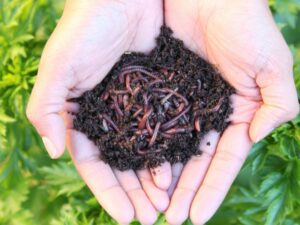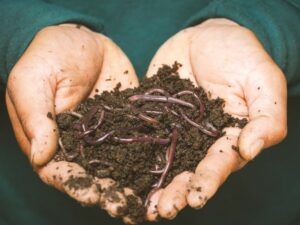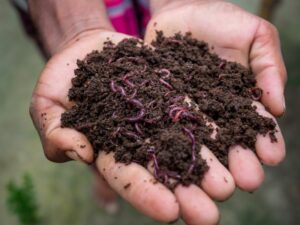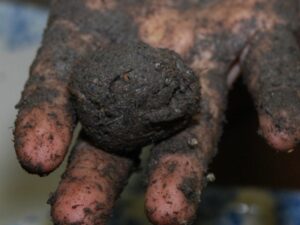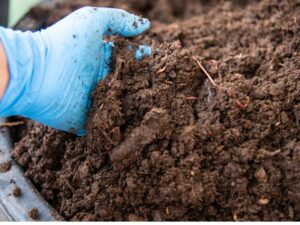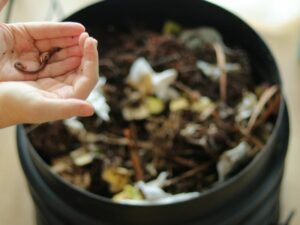Worms
Rotline: Is it possible to have too many worms in my vermicompost bin?
Rotline Question: Is it possible to have too many worms in my vermicompost bin? Answer: Red wiggler worms are amazing in so many ways, and population management is one of them. So, the short answer to the question is “No, you can never have too many worms!” Here’s why:As worms adjust to their home, they…
Read MoreFrom the Rotline: Do red wigglers belong in my backyard compost bin?
Rotline Question: Should I put red wiggler worms in my backyard compost bin? Answer: This is a question that comes up often when folks visit our store to purchase composting worms, and we often have to urge folks not to add worms to their backyard bin. The reason lies in the fundamental differences between traditional…
Read MoreComposting with Worms: Wiggling through Winter
Temperature is incredibly important to the productivity and livelihood of worms. Just like us, worms are happiest in moderate temperatures, so they may also need some help to thrive during the cooler months. Fortunately, most of San Diego County rarely experiences freezing temperatures, which can be deadly to worms. After all, they’re mostly water! Nonetheless,…
Read MoreSquiggling into Summer with Worm Composting
Our temperate San Diego weather is usually perfect for accommodating the red wrigglers used for vermicomposting. Their preference is for temperature ranges of 55 – 77° F, but they can tolerate temperatures above and below this range. Temperatures should be measured inside the bin since they can vary significantly from external measurements. As we approach…
Read MoreRed Wiggler Worm Reproduction
As composters, we definitely love our worms. And if you have a healthy vermicompost bin, then you definitely know there’s lots of love between the worms, too. But how exactly do our worm bins become so populous? Red wiggler worms are frequent reproducers. If conditions in the bin are ideal, each worm can produce up…
Read MoreFrom the Rotline: Are Super Dense Worm Castings Still Usable?
Yes! Thick, fudgy castings are as viable a soil amendment as finer, more granular castings. Denser castings may, however, necessitate some adaptations to traditional methods of harvest and application. First, an important distinction: – Castings/Vermicast = Worm manure – Vermicompost = A mixture of worm castings and decomposed or partially decomposed organic matter that has not been digested by the worm. Worm castings are…
Read MoreToo many slugs in my compost bin!
Do you have too many slugs in your compost bin? In a spray bottle, mix in 1 cup ammonia to one quart water. Go out at night and spray slugs wherever you find them. Ammonia will have no affect whatsoever on your compost. It will only kill slugs and snails. If you go slug hunting…
Read MoreWhat should you do if your worms are trying to escape the bin?
If your bin becomes too acidic, too moist, too dry, too compact, full of rotting food, full of food they don’t like, too hot, too cold or they just organize an expedition, your worms can attempt an escape from your bin. This thwarted escape plan (if your lid is on tight) ends up with many worms in…
Read MoreFrom the Rotline: Where can I buy worms in San Diego?
For vermicomposting bins, the type of worms you need are “red wigglers” or “red worms” (Eisenia foetida). These worms, as well as other composting supplies, are available for purchase at Solana Center through the online store. Most garden centers sell them as well. If you are starting a Wriggly Wranch Worm Bin, you will need about 1…
Read More
